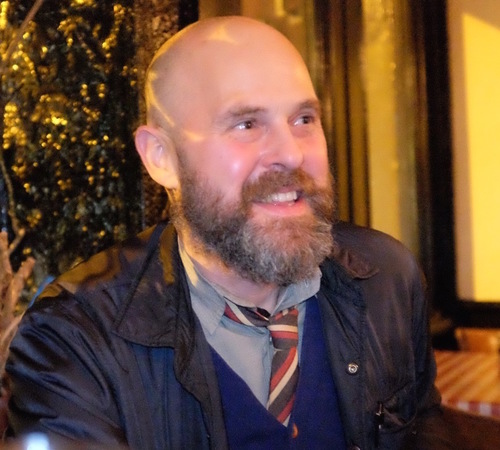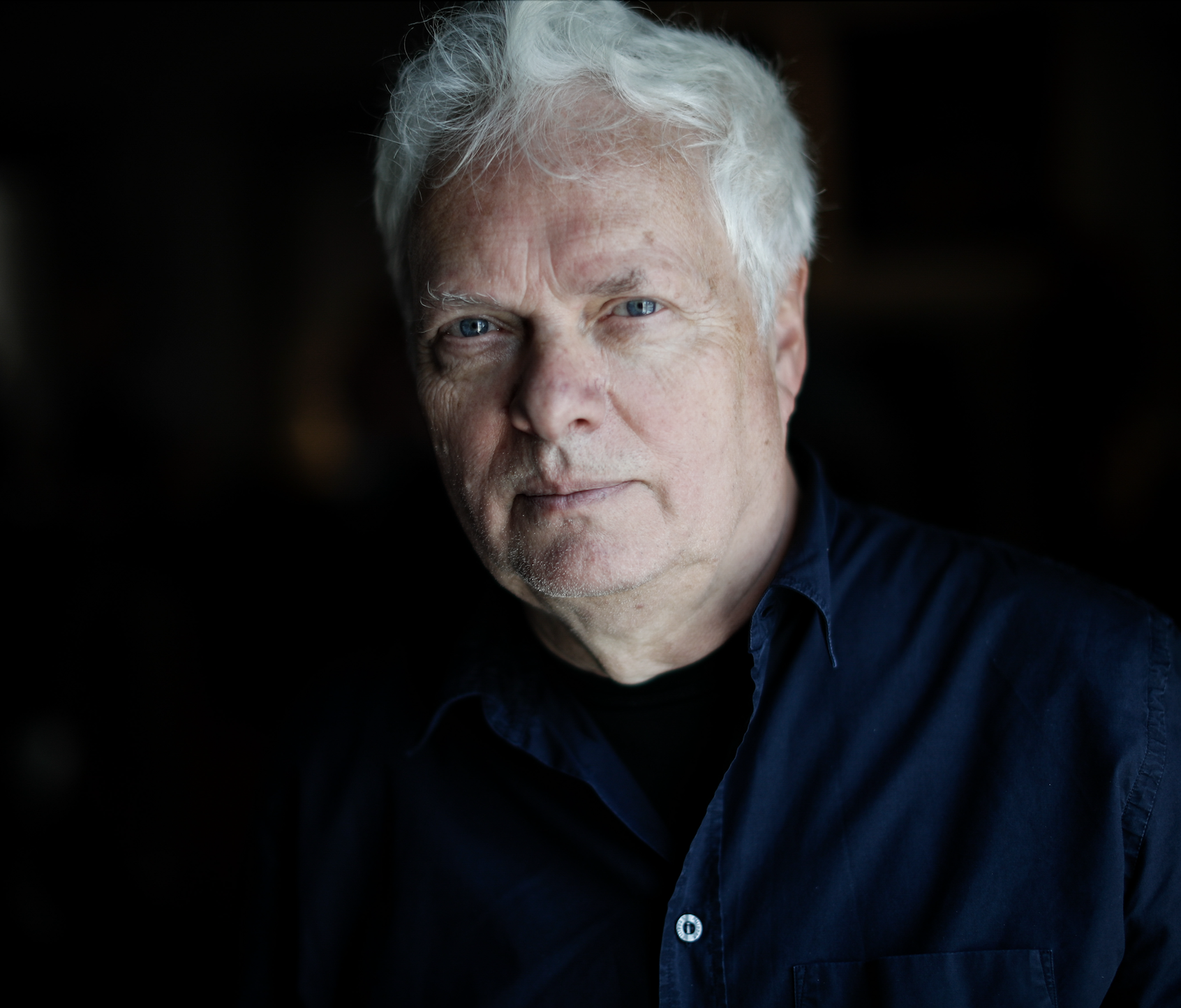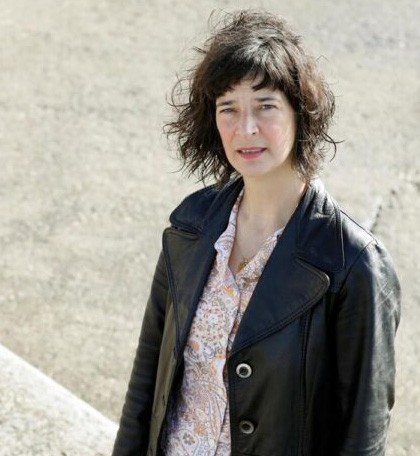The research group Performance and Cognition of the ICNOVA/NOVA University Lisbon is inviting academics and artists to submit proposals to the International Encounter:
PRESENCE
ABSENCE
INVISIBILITY
10 - 14 OCTOBER 2022
KEYNOTES

ALVA NOË
Alva Noë is a writer and a philosopher living in Berkeley and New York. He works on the nature of mind and human experience. He is the author of Action in Perception (MIT Press, 2004); Out of Our Heads: Why You Are Not Your Brain and Other Lessons from the Biology of Consciousness (Farrar Straus and Giroux, 2009); Varieties of Presence (Harvard University Press, 2012); Strange Tools: Art and Human Nature (Farrar Strauss and Giroux, 2015); and Infinite Baseball: Notes from a Philosopher at the Ballpark (Oxford University Press, 2019). . His latest book is Learning To Look: Dispatches from the Art World (Oxford, 2022).
Alva received his Ph.D. from Harvard in 1995 and is a professor of philosophy at the University of California, Berkeley, where he is also a member of the Institute for Cognitive and Brain Sciences and the Center for New Media. He previously was a Distinguished Professor of Philosophy at the Graduate Center of the City University of New York. He has been philosopher-in-residence with The Forsythe Company and has also collaborated creatively with dance artists Deborah Hay, Nicole Peisl, Jess Curtis, Claire Cunningham, Katye Coe, and Charlie Morrissey. Alva is a 2012 recipient of a Guggenheim fellowship and a former fellow of the Wissenschaftskolleg zu Berlin. He is a 2018 recipient of the Judd/Hume Prize in Advanced Visual Studies. He was a weekly contributor to National Public Radio’s now defunct science blog 13.7: Cosmos and Culture. Until 2025 Alva is an Einstein Visiting Fellow at the Free University in Berlin, where is the director of the Reorganizing Ourselves research group.

Heiner Goebbels
The composer and director Heiner Goebbels (*1952) belongs to the most important exponents of the contemporary music and theatre scene. His compositions for ensembles and big orchestras are currently performed worldwide as well as several of his music theatre works and staged concerts. He created a great variety of sound and video installations, which have been displayed by Artangel London, MAC Lyon, Museum Mathildenhöhe Darmstadt, Albertinum Dresden, New Space Moscow, Museo da Arte Bogota a.o..
Heiner Goebbels worked for nearly 20 years as a professor at the Institute for Applied Theatre Studies of the Justus Liebig University in Giessen (1999-2018), from 2012 to 2014 he was artistic director of the International Festival of the Arts RUHRTRIENNALE.2018 he received the first appointment for the newly established Georg Büchner Professorship, from the President of the Justus Liebig University and is established at the interdisciplinary research centre ZMI - Centre for Media and Interactivity in Gießen.
Upcoming performances can be seen in the Calender.

PATRÍCIA PORTELA
Patrícia Portela studied set and costume design in Lisbon and in Utrecht, where she made her master of arts. She studied film at the European Film College, Denmark, and has a master in Philosophy from the International Institute of Leuven, Belgium. Since 2003, she has worked on her own performances and installations in collaboration with international artists. She won the Revelation Prize in 1994 for her creative work in performance and cinema, the Prize Teatro na Década for “T5” in 1999, the Gulbenkian Foundation Prize Madalena de Azeredo Perdigão for the performance “Flatland I” in 2004, and a special mention for “Wasteband” in 2003, and she was one of the 5 finalists of the Sonae Media Art Prize 2015 with her installation “Parasomnia”, amongst other prizes.
She has been invited to participate in the prestigious International Writing Program (IWP) at the University of Iowa in 2013 and was literary resident in Berlin in 2016. She is the author of several novels: “Banquet” was a finalist of the Novel and Novella Big APE Prize 2012 and “Dias Úteis” was considered one of the books of the year by many critics. ). Her latest novel, “Hyphen”, 2021 was a finalist of the Prize Correntes D'Escritas and won the Prize Ciranda 2022. She also writes short-stories and chronicles for Jornal de Letras, Jornal do Centro and Coffeepaste.
She is a founder member of the Prado cultural association since 2003 and a curator at the collective editions Prado since 2008. She was the Artistic Director of Teatro Viriato (2020-2022). She regularly lectures on dramaturgy, space and image at Universities and cultural centers in Portugal (such as University of Minho or University of Lisbon) and abroad (University of Antwerp, Escola de Escrita in Curitiba, etc).
TIMELINE
Proposals
February 28th
Notification of Acceptance
until July 7th
Early-bird Registration
until August 15th
Late Registration
until September 10th
International Encounter
10 - 14th October 2022
program
October 10 (Monday)
9:30 - 12:30
Workshop with Renato Ferracini: Body as border
- at Casa do Coreto (Carnide)
14:00 - 17:45
October 11 (Tuesday)
9:30 - 12:30
Workshop with Renato Ferracini: Body as border
- at Casa do Coreto (Carnide)
14:00 - 16:00
Workshop with Gabriele Reuter, Navigating from the Gap
- at Estúdios Victor Córdon (Chiado)
The following days we will be at anfiteatro A14, piso -1, Colégio Almada Negreiros, Campolide
October 12 (Wednesday)
9:30 - 10:00
Opening, Maria Cardeira da Silva (FCSH), Cristina Ponte, Carla Fernandes, Paulo Filipe Monteiro, Cláudia Madeira
10:00 – 11:30
Chair:
Ana Pais
Olga Mesa, Practices of the (non) visible: the operating body and the double vision
Sylwia Dobkowska, Performance of Absence in Theatre, Performance and Visual Art
11:30 – 11:45
Coffee break
11:45 – 13:00
Chair:
Rita Vilhena
Amélia Bentes e Vítor Garcia, Visible (AB/sence)
(PERFORMANCE + TALK)
Alessandra Randazzo, Performing improvisation in art: between presence and absence
14:00 – 15:00
Chair:
Luca Aprea
Renato Ferracini, Presence and absence of representation in performance
Sarah Pini, Ecologies of presence in dance and performance
15:00 – 15:30
Coffee break
15:30 – 17:00
Chair:
Carla Fernandes
KEYNOTE
Alva Noë, Achieving each other: enacting values; making presence
This Keynote will not be given live but through video streaming here.
18:00 – 19:15
Film Branca de Neve, by João César Monteiro
- at Portuguese Cinemathèque, in Portuguese, without subtitles
Followed by round-table with Paulo Filipe Monteiro, Olga Mesa and Cláudia Madeira
20:00
Dinner at the Cinemathèque
October 13 (Thursday)
10:00 - 11:30
Chair:
Maria João Brilhante
Olga Martí, Theory and practice of reduction and residual
Lee Miller and Joanne 'Bob' Whalley, The Practice of Corners: Locating disquiet, disappearance and the embodiment of loss
Nelson Guerreiro, I would prefer not to or the temptation of absence
11:30 - 12:00
Coffee break
12:00 - 13:00
Chair:
Raquel André
Vania Gala, Some notes on the exclusionary and purifying category of the universal body in Performance
Mauricio Barría, Bodies and presences. Strategies of temporal insubordination in contemporary performance
14:00 - 16:00
Chair:
João Pedro Cachopo
Paulo Filipe Monteiro, The construction of presence in Pina Bausch’s dance, theatre and cinema
Irene Fiordilino, The affordances of absence in the construction of embodied rhythms
João Pereira de Matos, The Presence of Flesh: entangling Merleau-Ponty and Hortense Spillers through an Affirmative Shizophonia
16:00 - 16:30
Coffee break
16:30 - 18:00
Chair:
Paulo Ferreira de Castro
KEYNOTE
Heiner Goebbels, On the Omni-Presence of Music
October 14 (Friday)
10:00 -11:30
Chair:
Daniel Tércio
Paula Varanda, Alone together with the performing arts during social isolation
Clara Gomes, Presence, liveness, mediation and corporeality –updating the core theory of digital performance in post pandemic times
Everybody, Interactive Forum
11:30 - 12:00
Coffee Break
12:00 - 13:00
Chair:
João Garcia Miguel
Cristina Benedita and Eva Tremel, Performance in Immersion - private or public? - Visible or Invisible?
This performance will be available through streaming
here.
Macs Smith, Théâtre à la Table: The Paradoxical Proximity of the Comédie-Française’s YouTube Series
14:00 – 15:30
Chair:
David dos Santos
Bruno Piva, Presence in absence: death in T. Kantor and in Rimini Protokoll’ Nachlass
Carla Fernandes, The BlackBox project and its Lab
António Figueiredo Marques, The Negation Square: Generating Absences in the Performative Fields
15:30 – 16:00
Chair:
Nicolle Vieira
Katia Brito, Body Actuated - rehearsals for new ways of being together
(film and debate)
This talk will be available through streaming here.
16:00 - 16:30
Farewell Coffee-break
17:00 – 18:30
Chair:
António Figueiredo Marques
KEYNOTE
Patrícia Portela, The summons of absence
Please click the button below if you wish to download a pdf file with the program.
Scientific Committee
Paulo Filipe Monteiro (chair)
António Figueiredo Marques
Carla Fernandes
Clara Gomes
Cláudia Madeira
David dos Santos
Fátima Chinita
Fernando Matos Oliveira
Juan Albarrán
Luca Aprea
Matthew Causey
Maurício Barría Jara
Pedro Florêncio
Renato Ferracini
Sílvia Pinto Coelho
Gabriele Sofia
Organizing Committee
Cláudia Madeira (chair)
António Figueiredo Marques, David dos Santos, Miriam Freitas & Rita Vilhena (vice-coordinators)
Pedro Inock
Pedro Florêncio
Raquel Madeira
Sílvia Pinto Coelho
Ana Gariso
Carla Fernandes
Nicolle Vieira
Pedro Inock
Pedro Florêncio
Raquel Madeira
Sílvia Pinto Coelho
ATTENDING
Early bird - Payment until 15.08.2022
3 days*
General 180€
Students 90€
Late registration - Payment until 15.09.2022
3 days*
General 250€
Students 125€
On-site
3 days*
General: 300€
Students: 150€
* Workshops paid separately. See fees below.
Workshops
WS Gabriele Reuter: 15€
WS Renato Ferracini: 30€
WS Olga Mesa & João Fiadeiro: 30€
[Pack] WS Gabriele Reuter + WS Olga Mesa & João Fiadeiro: 35€
To register for the workshops please send an email to
lisbon.pai@gmail.com
THEORETICAL BACKGROUND
Questions of presence are central to the theory of performing arts and to the training of performers. Since the 60s, performance art has tried to create scenic alternatives to representative thought(realistic or symbolic) and to dualism (reality vs representation), favouring presence and interaction. This demands a redefinition of the scene but also of theory, art and culture.
Fischer-Lichte (2012) considers three degrees of presence: simple (the body as materiality); energetic (the body intensified by training); and radical (intensified by the collective presence). Presence is not an innate ability: it requires (in the body, not just in the mind)listening, attention, generosity, porosity, dispossession, dramatic and resonant multiplication. Presence is often equalled, or at least connected, to energy and breathing (prana, or koshi). How can we expand this energy in space, work on the magnetic field, transform the body’s weight into energy?
But every presence creates a distance. Derrida argued that presence, in order to be present and self present, has always to start representing itself. “Distance is in the very heart of presence” – a displaced and unstable presence created in the relation to the otherness. The performer is confronted with the often invasive co-presence of other performers, of the director and of the audience. He grows with them, in-between.
Moreover, we can actually place absence and nothingness (instead of presence) in the centre of thought, conceiving it as the first stance both on arts media discussion and social matters problematization (Foucault, Lacan, Žižek): what is not seen and not performed as a primal entrance to tensions and precarity. Hauntology (Derrida) and spectres (already present in Deleuze’s theory), as signifiers of absolute otherness, interrupt the comfortable notions of identity and history. We need to do an historical survey on ghosts, and also a critical approach on the duality visible/invisible, as images and visual mapping of reality came to appear as the other side of social opacity and individual centering on the myth of transparency.
In digital performance, which has exploded due to the new Covid forms of socialization, the concepts of presence, absence and visibility underpin the debates between virtual and real, embodiment and disembodiment, opacity and invisibility, liveness and mediation. The discussion of absence is interdisciplinarily pertinent as a follow-up to the ecologies of liveness, where reproduction enables the live category and where remediation relates to Derridean hauntologies as a means to activate pasts.
In addition, intermediality, as an in-between arena of simultaneities of present/absent, makes ambiguities visible in narratives of power and exclusion, and at the same time can activate both disappearance and what remains. Similar to past remains in the present, ephemerality is contained in identities (marginal and “invisible” performative-social practices become visible in certain communities) in a way that performance persists, and absence is made present. Absence needs to be named –even provisionally – in order to address a conflict between singularities.Presence also depends on visibility and power, as both theories and art works have been highlighting. One might consider that there is an ideology of visibility that makes an “increase in visibility” equivalent to an “increase in power”, ending up fetishizing a difference that does not take into account the real differences: “visibility” of black skin or gender cannot be a precise barometer for identifying a community of similar political, economic, sexual and artistic interests. Some of the performers who sought to inscribe this transformative component in their art used precisely this “power of the invisible”.
WHY ARE WE LAUNCHING THIS ENCOUNTER?
The current covid19 pandemic has a long history, from the black plague in medieval times, understood by Artaud as a paradigm for theatrical subversion, to AIDS, Ebola, bird flu, or SARS-1. But this time the world has stopped globally and nothing can ever be the same again. Social distancing, as a means to live the paradoxes visible/invisible and presence/absence, is in everyone’s agenda today. We can move towards distant, apathetic, fearful, aggressive, vigilant sociabilities; or we can move towards a reformulation of ties and a deep need to embrace the world.
The answers, the opinions, the dogmas are multiplied, but only a thought without haste will be able to really welcome what is new, and host a possible re-foundation of life. Our aim is to contribute to this discussion to come. The arts, especially when connected to life and its reinvention, have always been fundamental to create and illuminate our paths.
We deeply believe that we can help. Because this crisis did not come from the financial world but from the body, and performers work with the body. It's a disease of breathing, which has always been the source of our physical and vocal activity and our somatic training. Because we know what touch, distance and inhibition are, as well as the methods to overcome it. Because we live in the structural confrontation with the other, in the acceptance of otherness. Because we have always valued vulnerability and certain states of exception. Because we have learnt how to dialogue with our ghosts. Because we have the tools of improvisation. Because we deal with movement and pause. With the macro and the micro.
Moreover, the performing arts have been developing non-presential relationship modes, essential at this time of reterritorialization in the digital sphere.
